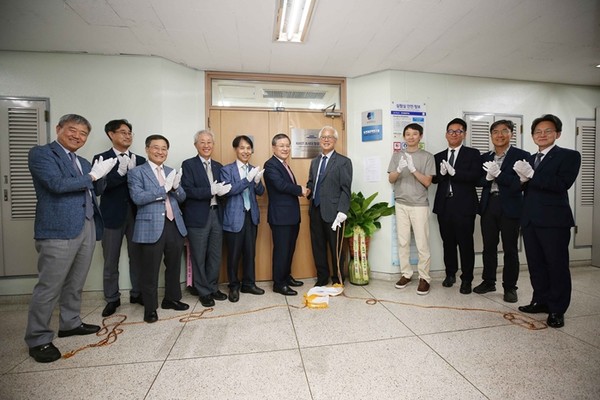This August, two more research groups have been designated as KAIST cross-generation collaborative research labs. Professor Sun Chang Kim’s Biodesign Engineering Laboratory in the Department of Biological Sciences and Professor Yong-Hee Lee’s Nano Photonics Laboratory in the Department of Physics have been newly selected for the initiative.

A widespread problem in research is the discontinuity in the transfer of research capability. When a professor retires, a large proportion of their research expertise, obtained through decades of experience, is not passed down to their successors.
In order to address this problem, the KAIST cross-generation collaborative research groups were established to facilitate the transfer of knowledge from more experienced professors to recently instated ones and to encourage a cooperative environment across generations. The selection of suitable research groups was launched in March 2018. This research initiative aims to enable sustainable research innovation through the creation of research groups of several professors, led by an experienced faculty member.
In order to select the new cross-generation collaborative research groups, rigorous evaluations were conducted between February and May. Four experts in research, including Professor Ralph Eichler and Professor Kwang-Soo Kim, were chosen as part of the selection panel, and the results were announced on May 31.
The Biodesign Engineering Laboratory will host Professor Byun-Kwan Cho from the Department of Biological Science and Professor Jung Kyoon Choi from the Department of Bio and Brain Engineering. The research group aims to develop an “intelligent, industrialized cell factory”, which is capable of designing genomes that are able to produce biopharmaceuticals and biomedically active materials through synthetic and systems biology. The group’s long term goals are to apply their research to bio-integrated applications, such as highly functional bioactive materials, new adhesive antimicrobial peptides and eco-friendly environmental restoration materials.
The Nano Photonics Laboratory will host Professor Hanseuk Lee from the Graduate School of Nanoscience and Technology, and Professor Min-kyo Seo from the Department of Physics, working alongside Professor Lee. The research group will aim to develop nonlinear optoelectronic and quantum optical devices. In order to make these devices, experiments on light-material interactions from optical micro/nano-resonators will be conducted. Furthermore, the two new research groups will receive a total of 500 million KRW over five years.

